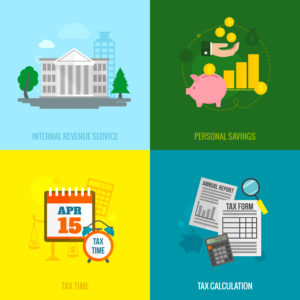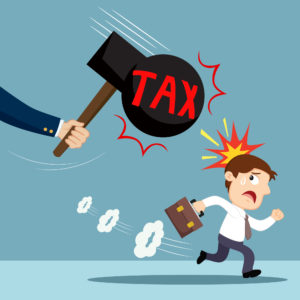Economic Impact Payments: What you need to know?

No action needed by most people at this time!
WASHINGTON — The Treasury Department and the Internal Revenue Service today announced that distribution of economic impact payments will begin in the next three weeks and will be distributed automatically, with no action required for most people. However, some seniors and others who typically do not file returns will need to submit a simple tax return to receive the stimulus payment.
Who is eligible for the economic impact payment?
Tax filers with adjusted gross income up to $75,000 for individuals and up to $150,000 for married couples filing joint returns will receive the full payment. For filers with income above those amounts, the payment amount is reduced by $5 for each $100 above the $75,000/$150,000 thresholds. Single filers with income exceeding $99,000 and $198,000 for joint filers with no children are not eligible.
Eligible taxpayers who filed tax returns for either 2019 or 2018 will automatically receive an economic impact payment of up to $1,200 for individuals or $2,400 for married couples. Parents also receive $500 for each qualifying child.
How will the IRS know where to send my payment?
The vast majority of people do not need to take any action. The IRS will calculate and automatically send the economic impact payment to those eligible.
For people who have already filed their 2019 tax returns, the IRS will use this information to calculate the payment amount. For those who have not yet filed their return for 2019, the IRS will use information from their 2018 tax filing to calculate the payment. The economic impact payment will be deposited directly into the same banking account reflected on the return filed.
The IRS does not have my direct deposit information. What can I do?
In the coming weeks, Treasury plans to develop a web-based portal for individuals to provide their banking information to the IRS online, so that individuals can receive payments immediately as opposed to checks in the mail.
I am not typically required to file a tax return. Can I still receive my payment?
Yes. People who typically do not file a tax return will need to file a simple tax return to receive an economic impact payment. Low-income taxpayers, senior citizens, Social Security recipients, some veterans and individuals with disabilities who are otherwise not required to file a tax return will not owe tax.
How can I file the tax return needed to receive my economic impact payment?
IRS.gov/coronavirus will soon provide information instructing people in these groups on how to file a 2019 tax return with simple, but necessary, information including their filing status, number of dependents and direct deposit bank account information.
I have not filed my tax return for 2018 or 2019. Can I still receive an economic impact payment?
Yes. The IRS urges anyone with a tax filing obligation who has not yet filed a tax return for 2018 or 2019 to file as soon as they can to receive an economic impact payment. Taxpayers should include direct deposit banking information on the return.
I need to file a tax return. How long are the economic impact payments available?
For those concerned about visiting a tax professional or local community organization in person to get help with a tax return, these economic impact payments will be available throughout the rest of 2020.
Where can I get more information?
The IRS will post all key information on IRS.gov/coronavirus as soon as it becomes available.
The IRS has a reduced staff in many of its offices but remains committed to helping eligible individuals receive their payments expeditiously. Check for updated information on IRS.gov/coronavirus rather than calling IRS assistors who are helping process 2019 returns.
GROCO remains open and available to answer tax, family office and implications of COVID-19 pandemic.
Is the Government Going to Tax You for Using the Internet?
Is the Government Going to Tax You for Using the Internet? Taxes, taxes and more taxes: that appears to be the government’s answer for just about every problem we face in society. There seems to be no end to the list of things that the government wants to tax. Now it seems that Americans could…
Expecting An Audit? Expect to Wait
Expecting An Audit? Expect to Wait Have you ever been audited by the IRS? Have you been told that you might be audited soon? Are you waiting to be audited right now? If you answered yes to any of these questions, then chances are you have either played the waiting game or you’re playing it…
Seven Signs Your Noncompliance Will Be Considered Willful
Seven Signs Your Noncompliance Will Be Considered Willful There are many ways taxpayers can get the attention of the IRS. Although a lot of people make innocent mistakes when they file their tax returns, there are others who willfully look for ways to skip out on the taxes they owe. The IRS does treat those…
Make Sure Your Heirs Inherit What You Want
Make Sure Your Heirs Inherit What You Want. The saying goes that their only two things that are certain in life: death and taxes. While people can generate endless amounts of money when they’re alive, they can’t live forever and they can’t take that wealth with them when they die. However, they can have a…




